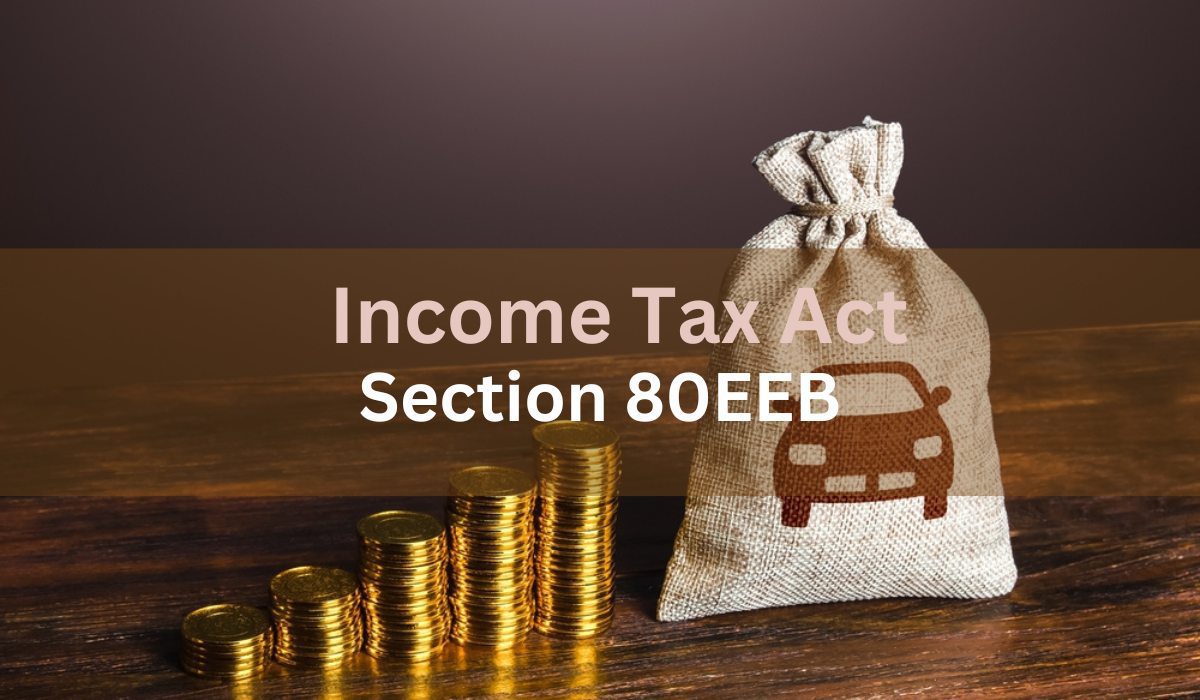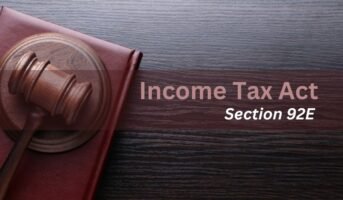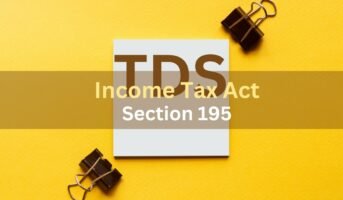Electric vehicles (EVs) run on electricity, and as no fuel is required, they are regarded as energy-efficient vehicles. To encourage the use of EVs, the government has introduced a new section, known as Section 80EEB, to enable EV buyers to avail of tax deductions on interest paid on loans obtained to buy the vehicles. In the Union Budget 2019, the government announced the incentive to purchase electric vehicles, stating that the advanced battery and registered e-vehicles would be incentivised under the scheme.
See also: Depreciation on car as per income tax: Car depreciation or vehicle value depreciation
What is Section 80EEB of Income Tax Act?
As per Section 80EEB of the Income Tax Act 1961, EV buyers can avail of deductions on the interest payments made on loans obtained for buying EVs for personal or professional use. It is applicable for two-and-four wheelers.
An EV refers to a vehicle powered entirely by an electric motor whose traction energy is supplied exclusively by the traction battery installed in the vehicle and has such an electric regenerative braking system, which during braking, provides for the conversion of kinetic energy into electrical energy.
Know about: Section 80ee
Section 80EEB: Eligibility
Only individual taxpayers can avail of the tax benefit under Section 80EEB of the Income Tax Act. Taxpayers belonging to other categories, such as HUF, AOP, company, partnership firm, or other taxpayers, cannot avail of this benefit.
Any individual who has never owned an e-vehicle and taken a loan for purchasing an electric vehicle from a financial institution is eligible to get tax deduction under Section 80EEB.
Amount of deduction under Section 80EEB
According to Section 80EEB, one can claim a deduction for interest payments up to Rs 1,50,000. This will enable individuals owing an EV for personal use to claim a deduction on interest paid on the vehicle loan. In addition, an individual can also claim a tax deduction of up to Rs 1,50,000 for business purposes under Section 80 EEB. One can claim interest payments above Rs 1,50,000 as a business expense, provided the vehicle is registered in the name of the owner or the business enterprise.
One should also note that individuals must get the interest paid certificate and have the relevant documents ready, including tax invoices and loan documents, when filing income tax returns. Further, the tax deduction is applicable only on the interest paid for the loan, not on the principal amount.
Section 80EEB: Period of Tax Benefit
Individuals can claim the deduction under section 80EEB for all the years where interest on a loan is paid, starting from AY 2020-21.
Conditions under Section 80EEB
The following conditions must be met to claim tax benefits under Section 80EEB of the Income Tax Act:
- The tax assessee claiming this deduction should be an individual, as the benefit is not available to other taxpayers.
- The loan must be obtained from a financial institution or a non-banking financial company for purchasing the EV. It must have been obtained for purchase on an e-vehicle for personal or business use.
- The loan should be sanctioned anytime during the period starting from April 1, 2019, till March 31, 2023.
See also about: Section 80EEA
Section 80EEB: Benefits
Section 80EEB of the Income Tax Act enables individuals to get tax savings by claiming a deduction on interest payments on loans availed for purchasing EVs. Further, EVs are not subject to road tax. In certain states, including Delhi, the cost of the registration is lesser. Further, the GST rate on electric vehicles has been reduced from 12% to 5%.
Promotion of electric vehicles
To promote electric mobility, the Indian government has approved Phase II of the FAME Scheme, which refers to Faster Adoption and Manufacturing of Electric Vehicles in India. It is an incentive scheme to promote electric and hybrid vehicles in the country. It provides financial incentives for buying electric vehicles and creating electric transportation and charging infrastructure. Incentives are available for three-wheelers, four-wheelers, and electric two-wheelers. The scheme has a total spending of Rs 10,000 crore for three years, starting April 1, 2019, and it will be completed by March 31, 2022.
Is there a subsidy on the purchase of electric vehicles?
The Indian government provides various subsidies for the purchase of electric vehicles under the Faster Adoption and Manufacturing of (Hybrid &) Electric Vehicles in India (FAME India) scheme. Under FAME 2, the maximum subsidy has been capped at 15% of the ex-factory pricing of the electric two-wheelers, which has been reduced from the 40% offered earlier.
FAQs
Is 80EEB applicable for a two-wheeler?
Yes. Individuals can claim tax deductions for interest payments on loans obtained for buying two-wheeler electric vehicles.
How long is an individual allowed to use Section 80EEB deduction?
Individuals can claim the Section 80EEB deduction until they have fully redeemed the loan availed for buying EVs.
What are the documents required to claim the Section 80EEB deduction?
The documents required to claim Section 80EEB benefits include a bank interest certificate, provisional interest certificates, and additional proof to support the deduction claim.
Who is eligible for Section 80EEB?
Only individuals are eligible to claim the income tax deduction under section 80EEb. Other taxpayers such as HUF, AOP, Partnership firm, a company, etc. cannot claim this benefit.
What is the income tax benefit of EV car?
The provision of Section 80EEB provides tax benefits to those availing vehicle loans to purchase an electric vehicle (EV). The individual taxpayer can claim a deduction of up to Rs 1.5 lakh on the interest component of the vehicle loan taken for buying the EV.
Harini is a content management professional with over 12 years of experience. She has contributed articles for various domains, including real estate, finance, health and travel insurance and e-governance. She has in-depth experience in writing well-researched articles on property trends, infrastructure, taxation, real estate projects and related topics. A Bachelor of Science with Honours in Physics, Harini prefers reading motivational books and keeping abreast of the latest developments in the real estate sector.











